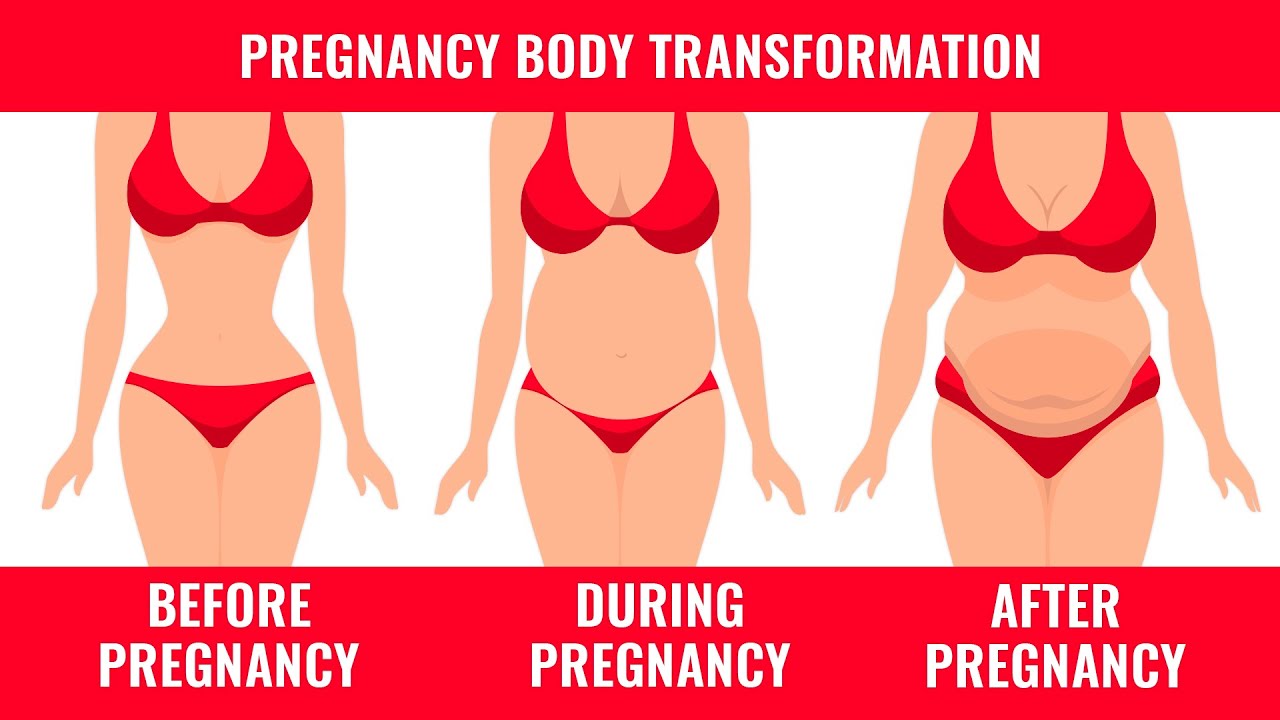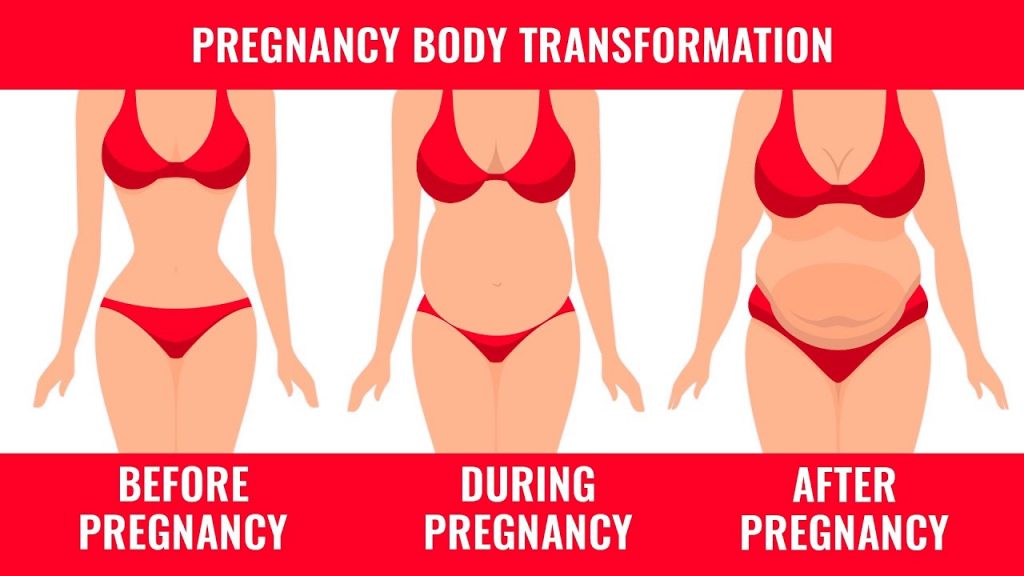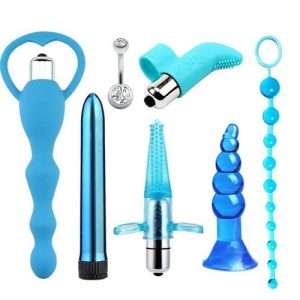
Pregnancy and Body Changes
There are physical and emotional changes in women when they are pregnant, and they are caused by pregnancy hormones.
Also, there are physical changes that happen to women after childbirth, some go back to normal after a few months while some are permanent body changes.
For example, the white smelly discharge after delivery can take 2, 3 months, or more but will be over later, but your vagina and breast will look different after birth.
However, your body needs time to recover from the changes that occurred during pregnancy and after childbirth.
Physical Changes After Birth
The weekly flow that starts after you’ve just given birth to your baby lasts for about 2 to 3 weeks.
Just follow the things your doctor tells you to do and what not to do after giving birth.
Drinking alcohol moderately can also help to clean your womb and fasten the blood flow.
Your uterus also becomes widened after childbirth and it can take from weeks to a few months before it gets back to its original size.
Your belly will not be as firm as it was before pregnancy after birth. It’s also likely to have black patches on your belly.
Don’t be discouraged by this, with exercises, diet, the right cream, and good care of your body, you can strengthen the abdominal wall in a few months as it was before the birth.
Just a few days after natural birth, the midwife will recommend special pelvic floor training to strengthen the pelvic floor muscles, because the pelvic floor was heavily stretched during the birth.
The strengthening of the pelvic floor muscles helps to prevent back pain and bladder weakness.
Sitz baths with chamomile or salt and antiseptic and scar creams can be very helpful here.
Your breasts become bigger and are filled with milk. It is now important to take proper care of the stressed nipples to prevent inflammation.
After weaning your baby, the breasts return to near-normal size. Swimming and chest strengthening exercises can also help your breasts to return to their normal, firm shape.
Hormonal Changes after Childbirth
Even during birth, more endorphins are released into the body to make the pain more bearable and to stimulate the anticipation of the baby.
There’s also hormonal imbalance after pregnancy and breastfeeding. During breastfeeding, the hormone prolactin is released to prevent ovulation till you stop breastfeeding your child, however, it’s very possible to ovulate and get pregnant while breastfeeding.
In some women, the hormonal changes after giving birth lead to strong mood swings up to postpartum depression, the so-called baby blues.
Possible complications
Infections of the uterus caused by a disturbing weekly flow – also known as puerperal fever should be prevented by taking good care of your vagina after giving birth.
In some cases, it can lead to congestion and inflammation of the breast (mastitis).
Postpartum hemorrhage is not avoidable if you have vaginal birth, but recovery can be quicken with sitz baths.
Postpartum depression and blood clots are other possible complications after childbirth and they can be well managed.
Conclusion
A healthy lifestyle, vitamin-rich food, adequate rest periods, regular exercise,, and targeted postnatal exercises help to overcome the physical rigors of pregnancy and childbirth quickly.
Take care of your body after giving birth and you’d enjoy the new life after childbirth.






